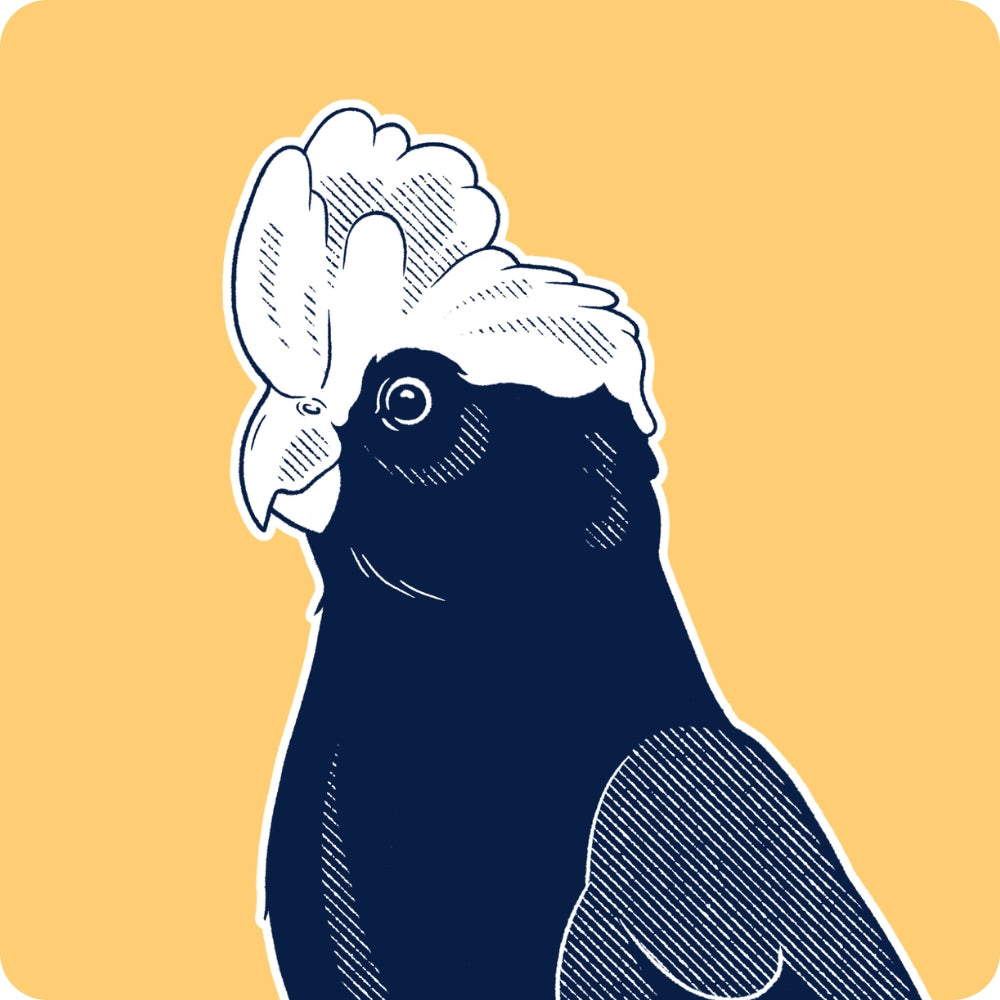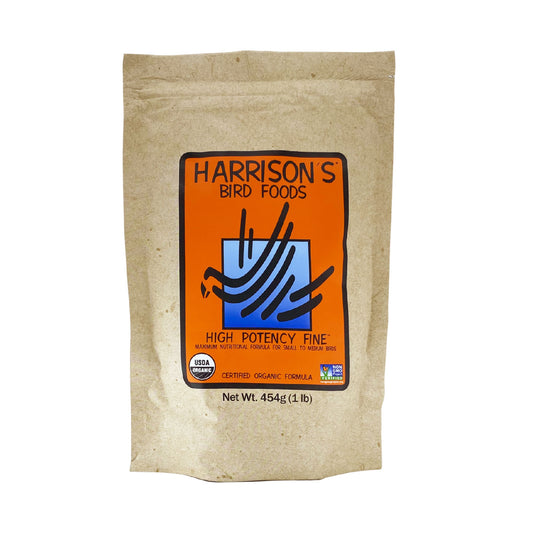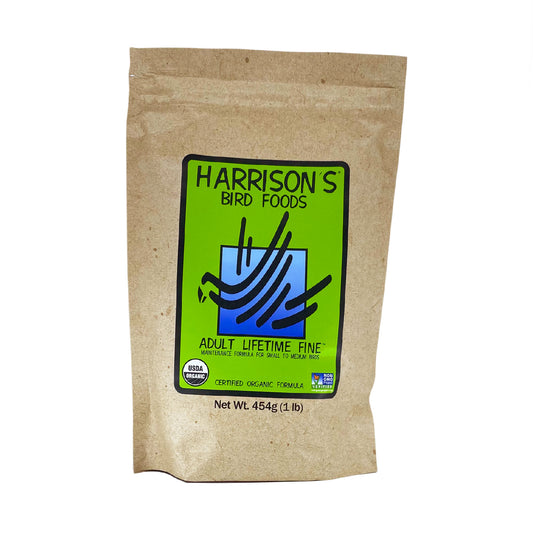

Large Parrot Nutrition
Good nutrition is the cornerstone of health for larger parrots such as galahs and African greys. These intelligent, long-lived birds are especially prone to conditions like obesity, fatty liver disease, and calcium or vitamin A deficiencies when kept on seed-heavy diets. To stay well, they require a balanced diet based on quality pellets, a wide variety of fresh vegetables, some fruits in moderation, and carefully chosen supplements. Providing proper nutrition not only helps prevent disease but also supports strong bones, vibrant plumage, clear vocalisation, and long-term vitality.
Diet Breakdown
-

60 - 70% Formulated Pellet Diets
Pelleted diets are designed to meet all of your bird’s nutritional needs and help prevent the selective eating often seen with seed-based diets. Transitioning an adult cockatiel from seeds to pellets takes time and patience. Start by gradually reducing the amount of seed offered over several weeks while providing pellets in a separate dish. Don’t remove seeds entirely until your bird is consistently eating pellets, along with fresh vegetables and occasional fruit.
Need help making the switch? Check out our Step by step guide to pellet conversion.
-

20 - 30% Vegetables, Sprouts and Fruit
Fresh produce should make up around 20–30% of a budgie’s diet, with a focus on vegetables, herbs and weeds which provide essential vitamins and minerals. Fruits can be included in small amounts, but should be limited due to their high sugar content.
Vegetables, sprouts, fruits, and herbs can be chopped or offered in small bunches to encourage natural foraging. If your budgie doesn’t take to greens straight away, don’t give up, keep offering a variety and rotate options regularly. Patience and consistency are key to building healthy eating habits.
NOTE: Avoid low-nutrient options like iceberg lettuce, and never feed toxic foods such as avocado. Always wash produce thoroughly to remove pesticides or other residues.
-

5% Seeds and Nuts
Seeds and nuts should make up only a small part of a cockatiel’s diet—no more than 5%. While seeds are high in carbohydrates, they’re low in many essential nutrients. Similarly, products like seed bells, millet sprays, moulting foods, and conditioning mixes are mostly seed-based and offer limited nutritional value.
A few safe nuts like almonds, walnuts, or cashews (unsalted and offered in small amounts) can be given occasionally as treats, especially for training or enrichment. However, due to their high fat content, they should be used sparingly.
Gradually reducing seed and introducing balanced pellets and fresh vegetables will help support a smooth transition to a healthier, more complete diet.
-

Water
Fresh, clean water should be accessible at all times. If using gravity-based water containers, these should be thoroughly cleaned daily, as bacteria and biofilm can accumulate quickly.
Supplements
Supplementation and Special Diet Needs
Multivitamins
Even with a carefully balanced diet, larger parrots like African greys, cockatoos, and galahs can still miss out on key nutrients, especially if they are selective or fussy eaters. A high-quality, water-soluble multivitamin offered 1–3 times per week can help fill nutritional gaps, strengthen immunity, and support long-term health.
Calcium and African Grey Health
African greys in particular have a higher requirement for dietary calcium than many other parrot species. A lack of calcium can lead to hypocalcaemia, seizures, brittle bones, and poor feather quality. Supplementation through cuttlebone, mineral blocks, or veterinary-recommended calcium products is important, and dosing should always follow professional guidance.
Mineral Bells & Cuttlefish Bone
Mineral bells and cuttlefish bones are great sources of calcium and essential trace minerals for cockatiels. They also help keep beaks healthy and trimmed. While not a complete supplement on their own, they’re a useful addition to support bone health, especially in egg-laying birds.
Liver Support for Seed Eaters
Seed diets are high in fat and low in key nutrients, which can strain the liver over time. Support liver health by offering dark leafy greens, using bird-safe liver supplements like milk thistle, L-carnitine and providing a multivitamin rich in B vitamins and antioxidants.
Tips for Larger Parrots Care
- Foraging toys, chopped fresh branches (safe wood species), and food puzzles help mimic natural feeding behaviour and prevent boredom (which is a huge welfare issue in cockatoos and greys).
- Monitor food intake daily to detect changes in appetite, mood, or health.
- Offer a wide variety of fresh vegetables, herbs, and small amounts of fruit every day.
- Refresh food and water dishes daily, and clean thoroughly to maintain hygiene.
- Don’t give up if a food is refused at first — persistence and repeated exposure often win over picky eaters.
With the right dietary balance, your parrot will truly thrive.
Large Parrot Safe Foods
-

Fruit:
Apples (remove seeds)
Pears (remove seeds)
Blueberries
Kiwi Fruit
Grapes (seedless)
Oranges (small quantities due to acidity)
Strawberries
Mango
Papaya
Banana
Cherries (remove pits)
Watermelon (seedless)
Rockmelon (cantaloupe)
Honeydew Melon
Plums (remove pits)
Peaches (remove pits)
Apricots (remove pits)
Nectarines (remove pits)
Passionfruit
-

Vegetables:
Carrot (chopped or grated)
Sprout
Spinach (in moderation)
Kale
Broccoli
Silverbeet
Pumpkin (cooked or raw, seeds removed)
Edamame beans
Snow pea shoots
Zucchini
Sweet Potato (cooked)
Bell Peppers (all colors)
Cucumber
Celery (remove stringy parts)
Beetroot (leaves and root in moderation)
Green Beans
Peas
-

Herbs:
Basil
Parsley (moderation)
Coriander (Cilantro)
Mint (any variety)
Thyme
Oregano
Sage
Dill
Rosemary
Lemon Balm
Chamomile
Chervil
Lemon Verbena
Marjoram
Bee Balm
Bay Leaf (fresh)
Tarragon
Fennel (leaves)
Comfrey (in small amounts)
-

Weeds:
Dandelion (flowers and leaves)
Chickweed
Plantain
Purslane
Nasturtium (flowers and leaves)
Clover (moderation)
Shepherd's Purse
Mallow
Lamb's Quarters
Yellow Dock
Bittercress
Peppergrass
Wild Mustard
Borage (flowers and leaves)
Sorrel

Harmful foods
Avocado
Chocolate
Caffeine (coffee, tea, soda)
Alcohol
Onion
Garlic
Apple seeds and fruit pits (e.g. cherry, peach, plum)
Salt Fatty or fried foods
Sugary foods
Xylitol (artificial sweetener)
Mouldy or spoiled food
Rhubarb
Tomato leaves and stems
Raw or dried beans
Dairy products (in large amounts)
Pellet Diets
-
Harrison's - High Potency Fine Pellets
Regular price From $32.00 NZDRegular price -
Harrison's - Adult Lifetime Fine Pellets
Regular price From $29.00 NZDRegular price











